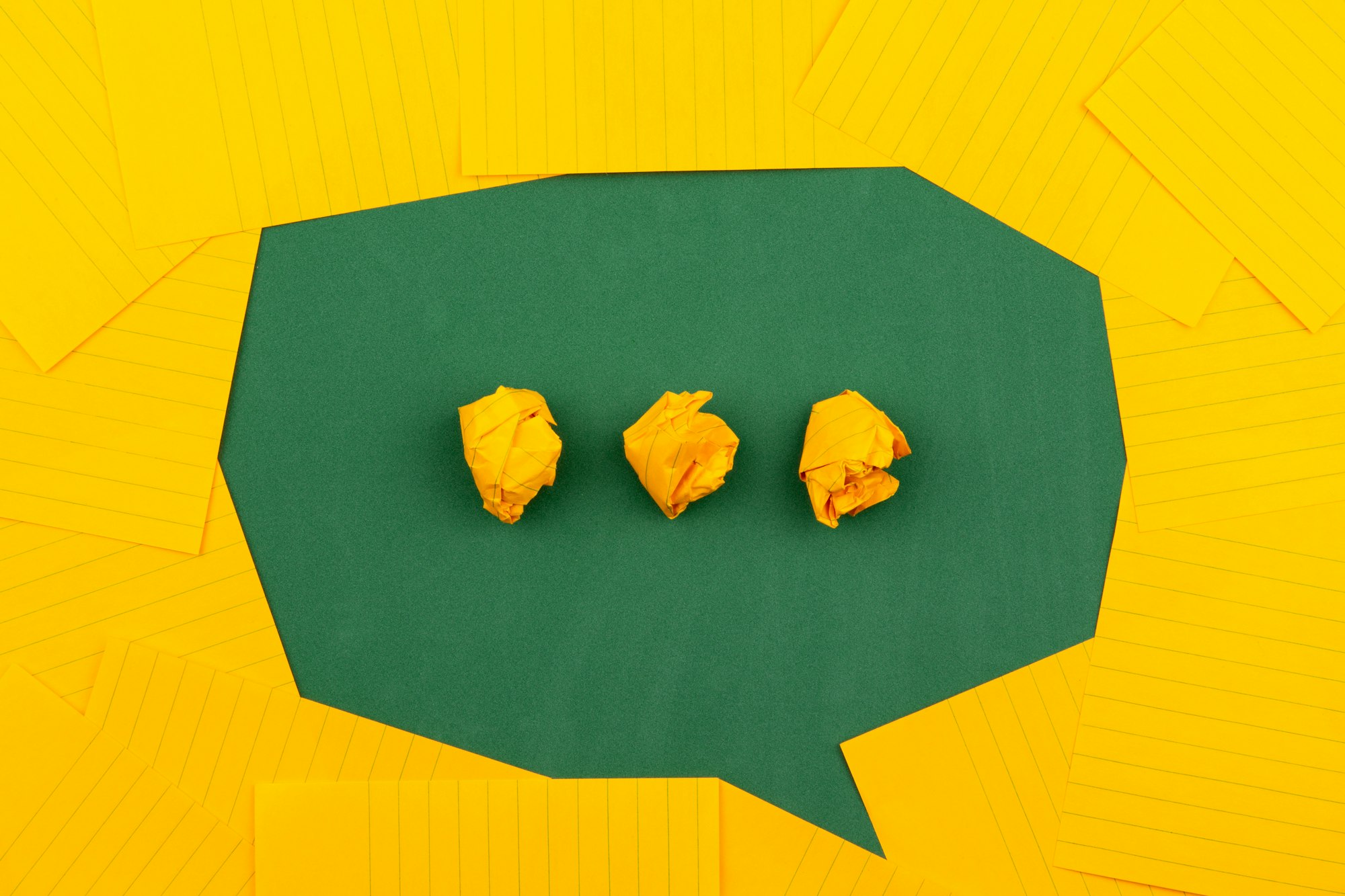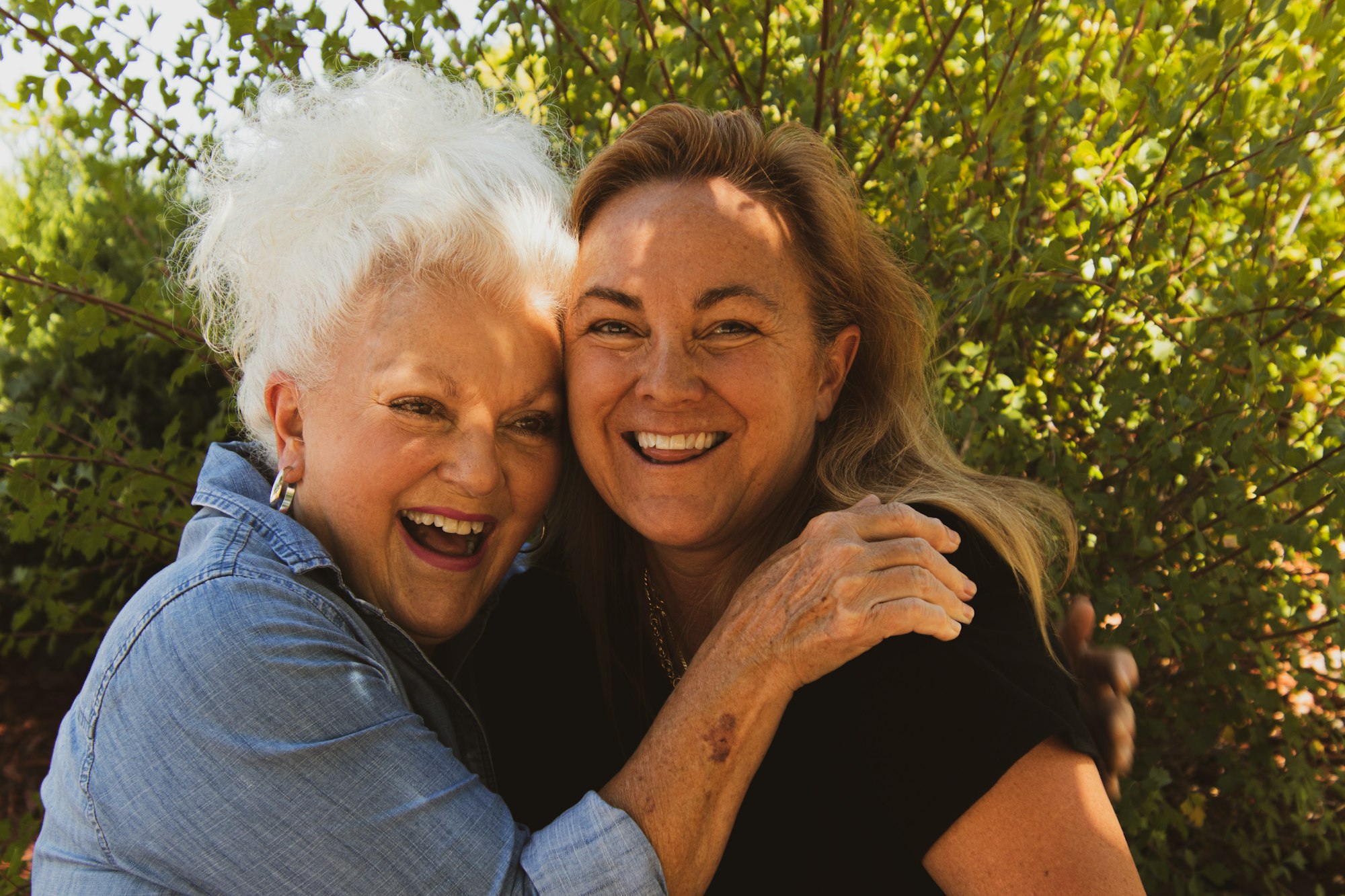
Conversation doesn't always come naturally, but learning to converse can reverse loneliness and isolation. Here's how.
Can we talk? Probably not. Can you talk AT me? Probably. That's more likely what you and I do. Pontificate, push our ideas, press ourselves upon others.
That's not conversation.
Here's the history of the word:

It used to mean intercourse, as in adultery. However, as the word evolved, it retained the implication of intimacy, as the art of conversation allows us to bend ourselves towards one another, building trust, caring and even love.
Boy, we are a million miles from that these days.
Isolation and one-way barking on line go a long way towards causing us to feel like total schlubs when it comes to connection. For many folks, high-quality conversational skills, particularly among the younger, have gone by the wayside. You can argue, quite rightly, that this in part due to phones, media, and the constant demands on our attention. Not all, thought. It's always been this way, just more so, now, and for more of us.
We've always been poor at connecting
A number of years ago, long before social media and Covid put virtual and very real walls up between us, I was a master at teaching networking skills. Still am. I started with a case of social anxiety so severe I couldn't ask for the salt at a Denny's. I'd pay a lot for a fancy night out, and then stay home.
I understand the safety of the house-as-womb. But that avoidance makes for a very lonely existence.
The Army made me a journalist, so I had to learn to interview folks. There is no single better teacher of the art of gab than learning the art of interviewing for a story. Why? Because good conversationalists are experts at teasing out what's interesting about you and me. However, most of us think it's our job to thrill our audience with our brilliance.
Perhaps the first lesson- and best lesson- I ever got and continue to give about networking skill is this:
It's not about you, never was about you and never will be about you.
So much of talking is so self-centered that folks feel as though their brains are being sucked out, we are that needy for validation. You know the type. Some of us are like that some of the time, some of us are like that ALL of the time. The latter is exhausting.
Listen listen LISTEN for crying out loud.
Stop inhaling just to launch into another diatribe, which makes us insufferable. I do it, I know, and I battle this, so I get it. However. It is NOT about us.
Until you and I learn that lesson, and I am reminded of it regularly when I firehose some poor handyman who shows up at my house when I've been isolated for too damned long, we are lousy company.
You're not alone. Not at all.
About 75% of folks were terrified of networking when I first starting teaching it decades ago, and my guess is that the ratio is likely higher now. We were never very good at it to begin with because we are, all of us, so very self-focused.
Fellow professional speaker Debra Fine wrote this lovely book some years back. It's a classic and still does all the work it needs to do for you and me:

This belongs in your collection, and I guarantee it will help enormously. Just saying, only reading it and nodding at its wisdom does you squat. As with all things you gotta practice.
Conversation isn't networking isn't selling
Networking has a bad rap because it has for years been associated with sales. The sad part about how the local Chambers of Commerce use networking is to force business connections, rather than to let them evolve organically out of friendships.
This is precisely what is wrong with LinkedIn, for the Lurkers leap at the very first indication of interest. Used to be you could connect first. Now if you connect, the first thing is a highly-insensitive, impersonal sales pitch.
You don't matter. THEY do. Nothing warm and fuzzy about it.
At its true base, charisma is all about listening with the intent to understand.
To really hear. However the more isolated we've become, the more desperate we are to be heard, and in the process we drown everyone else out with our neediness.
Problem is, everyone else is the same. The winner is the listener.
To that, please see this article by fellow Medium writer Sean Kernan:

What I loved about Sean's article is that he emphasizes attending to the small details. Remembering something personal is intensely powerful. It sure gets our attention when someone does it for us. Why?
That sacred gesture of remembering tells us that we matter enough to be memorable.
It took me years to learn to recall people's names, and even more years of practice to recall details about our conversations. As Sean writes, this is a hugely powerful skill. Why? Hell. Almost nobody recalls your name, much less some small-but- important detail about your life.
For some reason, maybe because I'm a storyteller, such things stick with me. Not always, but often enough so that when I can circle back in a conversation and call that back, or remember it the next time we talk, that makes ME memorable because I cared enough to attend.
Years ago I started practicing by looking at people's name tags and then forcing myself to use their name without looking at the name tag again. Wait staff, nurses, baggers at my supermarket, janitorial staff, people who fade into the background. I can tell you that the woman who is almost always helping at the self-checkout at my Fred Meyer is named Dale. I make myself remember. She loves seeing me coming because she knows I have SEEN her.
If you find others interesting, they will find YOU interesting. It really is just that damned basic.
Medium writer Kurt Andersen wrote this lovely piece for GEN the other day which caught my eye in a wholly different but extremely relevant way:

The more we hide inside and make unfounded assumptions about "those guys" the more we tilt towards ignorance and civil war. Kurt's gentle experience is precisely what I find when I take my journalist's ear and intentions out into the world, where I cast myself far and wide all over the earth to learn. The more I do that the more I deeply appreciate the difference between being gently and genuinely curious with the intent to learn, and going out to proselytize.
This might explain to you why I dislike missionary work, religious self-righteousness and all manner of proselytizing, for it implies that I AM the only authority and MY truth is all that matters and MY way of being/seeing is the only valid way of life.
That makes us a bit of a shit, in fact.
It's precisely the same behavior we see online, opinions shoved upon Dear Reader as facts, that desperate need to be validated by screeching ever more loudly at a largely uncaring Universe.
Forgive me for pointing out the obvious, Sparky, but if we want the Universe to care about us, we have to demonstrate our interest in the Universe first. As in other people, their lived lives, ideas and stories.
Look for something to compliment, celebrate, and connect with as we read and listen.
Interestingly, since we are who we are when we write AND when we speak, we can practice good listening and conversational skills online as well. Good readers, the best, scan and scour other's writing and pick something out to compliment. That's an easy habit to build. It's the stark opposite of seeking a talking point for the pure pleasure of bludgeoning Dear Author with OUR version of THEIR reality.
It's highly likely that this happens in person, too.
Bet we do that at home, Sparky. Bet we do that most of the time. Bet it doesn't make us many friends, either. And, in so many cases, we hardly realize that we are alienating ourselves.
Social media has made social morons of many of us, who otherwise might be good company. The concentration on manipulation of us via outrage is part of the issue; we stop focusing on what to like and search for what to criticize.
Again, at the risk of pointing out the obvious, not many of us wanna talk to folks who do this to us. Our parents, preachers, teachers and spouses and partners do a fine job of criticizing us already. We don't need more from others, which in any case is mostly their cascading our self-criticism onto others.
The only way to turn off that spigot is to stop being a conversational bigot.
Be open, soft and curious. Ask good open-ended questions. Pick up on something and then, when the lull happens, as it usually does, try something like this:
"A few minutes ago you mentioned X. I wanted to explore that with you a little more. Would you mind telling me more about how you got into that?
The practice of bookmarking a conversational point is superb listening practice. As a journalist, this is my job. As someone who might like fun company, it's something you might want to try. But first, we have to turn off the firehose of our neediness to be heard.

You need to get out more
Social distancing has made people terrified of talking because of the aerosol nature of Covid.
Okay, okay, that goes for those who take it seriously. My very careful, fully-vaccinated, isolated and living-alone ex just contracted Covid. Likely some anti-masker in his building elevator, there are many. Now he's paying the price. Makes me not want to talk to anyone much either. But we must, for to not speak is making us far more than anti-social. It's killing us off. That was before the pandemic. See:
https://www.nytimes.com/2016/12/22/upshot/how-social-isolation-is-killing-us.html
Covid has, of course, made us even more wary of and bitterly angry at one another over political rather than just everyday differences. However in this case far more is at stake, as in our lives, and those of our loved ones. Being able to build trust is essential to our humanity, and in times of pandemics, that need is underscored.
Investing time in a lot of different kinds of folks teaches tolerance as well as teaches us about the world.

What you can do
Standing in line, all masked up, I make jokes. Jokes make people laugh. Laughter creates safety, commonality, and likeability. Those jokes are always at my own expense which makes me approachable. Suddenly I'm not some potential viral agent but someone to RELATE TO. Be polite, kind, and interested, not just in perpetual search of an audience.
On line, I actively reach out, I share comments and often elevate other's material. Perhaps one person out of every fifty bothers to thank me, and I have rarely seen others return the favor (maybe once) but that simply underscores my point about how self-focused we all. Doesn't deter me.
While digital and zoom do not replace in person contacts, in some cases they are all we have. Our willingness to be open, soft and curious about people, to give space for silence, to allow space for others to have opinions, lives, experiences and ideas are all the foundational blocks for connectivity.
I'll be writing more on this. However, we start where we are. The onus is on us, if you'll forgive the play on words, to open the door to connections. Let's stop monetizing real people and allow our connections to blossom into real friendships. Patience, time, and genuine interest.
They work now as they always have. It's up to us to offer them first.




Comments powered by Talkyard.